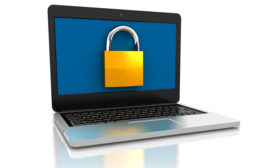- NEWS
- MANAGEMENT
- PHYSICAL
- CYBER
- BLOG
- COLUMNS
- EXCLUSIVES
- SECTORS
- Arenas / Stadiums / Leagues / Entertainment
- Banking/Finance/Insurance
- Construction, Real Estate, Property Management
- Education: K-12
- Education: University
- Government: Federal, State and Local
- Hospitality & Casinos
- Hospitals & Medical Centers
- Infrastructure:Electric,Gas & Water
- Ports: Sea, Land, & Air
- Retail/Restaurants/Convenience
- Transportation/Logistics/Supply Chain/Distribution/ Warehousing
- EVENTS
- MEDIA
- MORE
- EMAG
- SIGN UP!
Home » Keywords: » Laptop Security
Items Tagged with 'Laptop Security'
ARTICLES
DHS: Laptops, Phones Can Be Searched Based on Hunches
U.S. Border Agents Can Search Travelers' Electronics for Signs of Terrorist or Other Illegal Activity, and Can Copy and Keep Files.
June 6, 2013
Cyber Security -- Bring Your Own Device
New Study Explores Security Risks in Office Laptop Use
August 23, 2012
Sign-up to receive top management & result-driven techniques in the industry.
Join over 20,000+ industry leaders who receive our premium content.
SIGN UP TODAY!Copyright ©2025. All Rights Reserved BNP Media.
Design, CMS, Hosting & Web Development :: ePublishing





